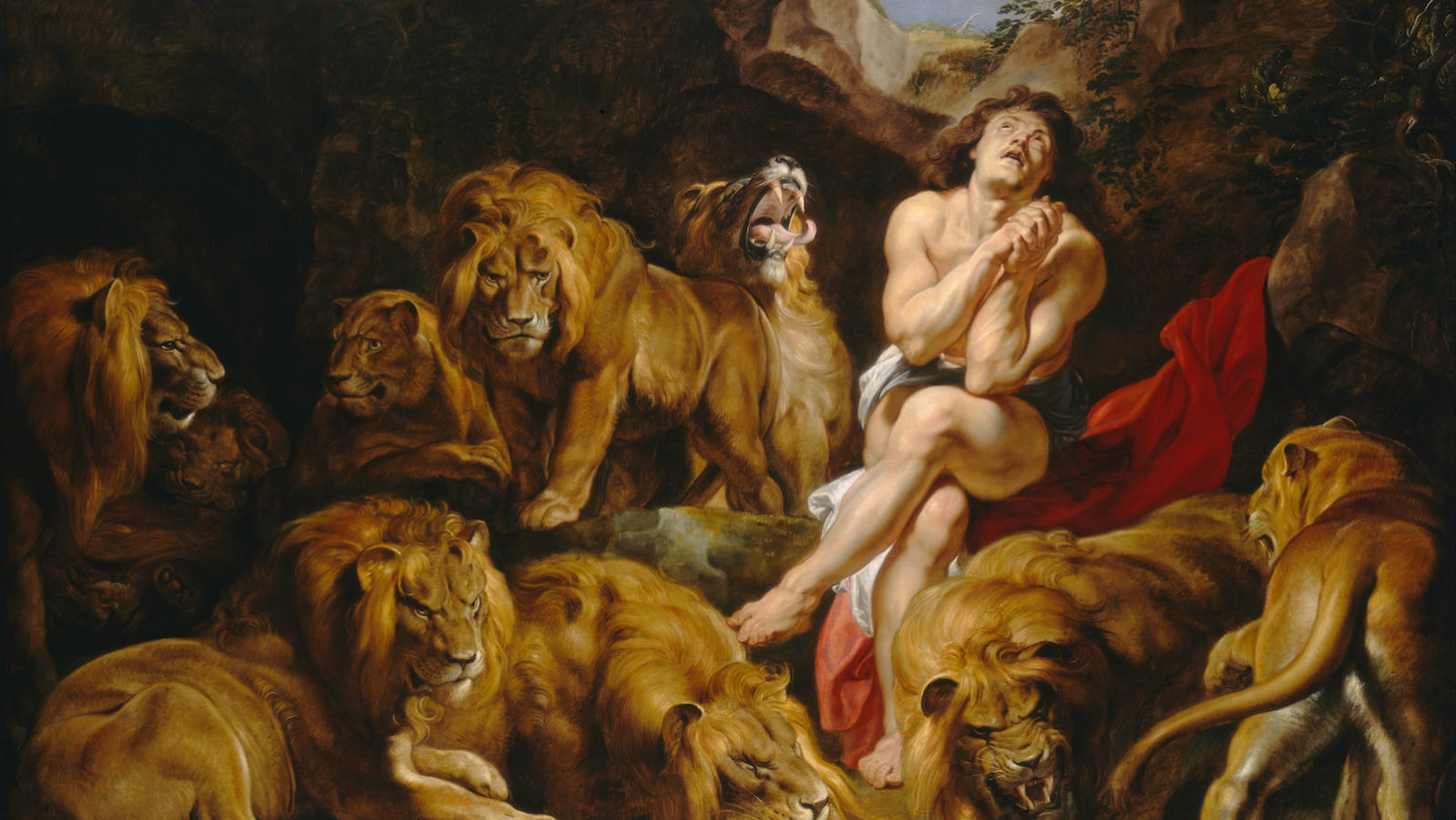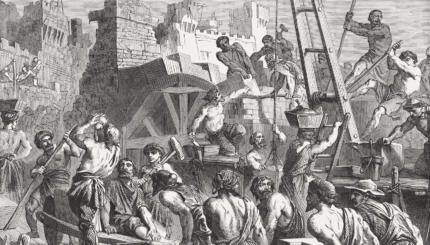The hero of the Book of Daniel (in the Ketuvim section of the Bible) is one of the Jews exiled in Babylonia, a soothsayer at the Babylonian court under Nebuchadnezzar (who died in 562 B.C.E.) and Belshazzar (who died in 539 B.C.E.), and at the Median and Persian courts in Babylon under “Darius the Mede” and Cyrus (who died in 529 B.C.E.).
Read the Book of Daniel in Hebrew and English on Sefaria.
Persons named Daniel (“God has judged”) are mentioned in Babylonian records and in the Bible elsewhere. For instance, a signer of Nehemiah’s covenant in 444 B.C.E. was a priest by the name of Daniel (Nehemiah 10:6). A Jewish oracle‑monger of the same name may or may not have lived in Babylon at the time of King Nebuchadnezzar.
Yet it is probable that the name of the hero of the Book of Daniel was chosen to bring to mind the Daniel spoken of in the Book of Ezekiel. The Lord says through the mouth of Ezekiel (14:14) that, “when a land sins against Me,” these three alone, Noah, Job, and Daniel, by their righteousness would be able to escape the divine anger.
With your help, My Jewish Learning can provide endless opportunities for learning, connection and discovery.
Take a deep dive into the Book of Daniel through our five-part email series.
At the court in Babylon, the seer Daniel again and again is in peril of life, but because of his piety he is saved miraculously just as righteousness would have delivered his namesake. ‘The seer Daniel is a “revealer of mysteries” (2:47) of the future to the Kings. Ezekiel (28:3) scoffs at the ruler of Tyre, who considers himself as wise as a god (and thus cognizant of the future). “Behold thou art wiser than Daniel. No secret is kept dark from thee.” Ezekiel probably speaks of a legendary king of old, who rendered justice to the widow and the fatherless, and was celebrated in Canaanite epics. Yet the author and the readers of the Book of Daniel could not help but associate their Daniel with his namesake in the Book of Ezekiel.
A Book in Two Parts: Narratives and Prophecies
The Book of Daniel consists of two parts. As Isaac Newton in his Observations on the Prophecies of Daniel (1732) put it: “The Book of Daniel is a collection of papers written at several times. The last six chapters contain Prophecies… written by Daniel himself.” The first six chapters are “a collection of historical papers written by other authors.” In the stories about him, written in the third person, Daniel, like the biblical Joseph, is minister to pagan kings, and interpreter of signs vouchsafed to them. In the second part, written in the first person, Daniel, like biblical prophets, records signs seen by himself and he is unable to understand their meaning. Now he himself needs an angelic interpreter.
The contrast between the wizard of the narratives and the passive medium of the visions makes it impossible to believe that the stories and the revelations were composed by the same writer. The author of the visions… (whose true identity we do not know) wrote at the time of Antiochus IV Epiphanes (176‑164 B.C.E.). But he spoke in the name of Daniel, who was is already known to readers from the stories which glorified the wisdom of the ancient seer.
Excerpted from Four Strange Books of the Bible, with the permission of Schocken Books.



